Technology
Globant takes Saudi Pro League into a new era through a Competition Management Solution leveraging AI
This reinvention partnership reinforces Globant’s growing footprint in Saudi Arabia’s sports ecosystem. Powered by AI and cutting-edge technology, the new platform will raise the operational standards of Saudi Pro League to match the world’s leading football tournaments The Competition Management Solution will automate core processes and enhance the experience for players, coaches, and league officials, […]
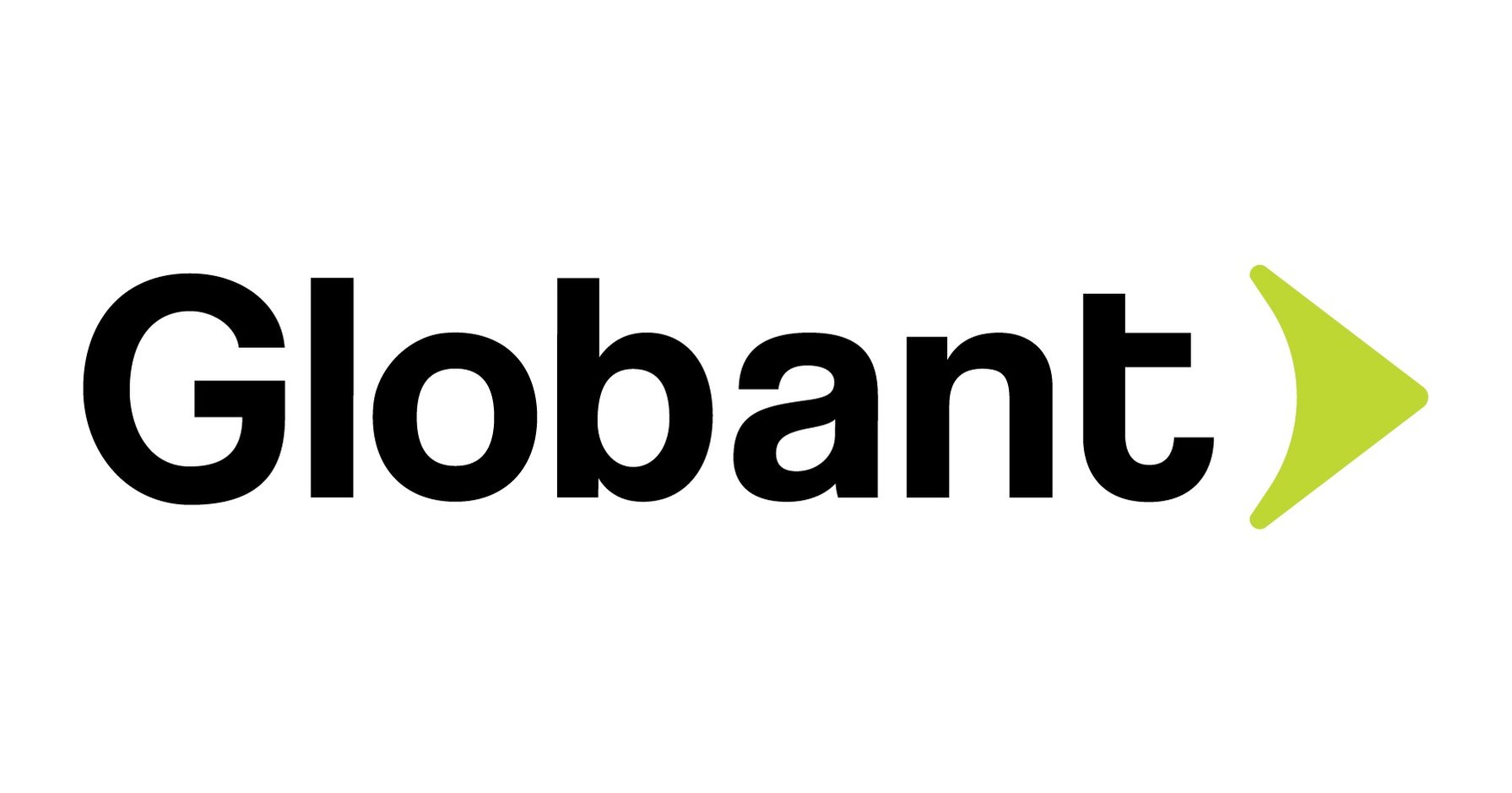
- This reinvention partnership reinforces Globant’s growing footprint in Saudi Arabia’s sports ecosystem. Powered by AI and cutting-edge technology, the new platform will raise the operational standards of Saudi Pro League to match the world’s leading football tournaments
- The Competition Management Solution will automate core processes and enhance the experience for players, coaches, and league officials, while integrating advanced AI to support faster and more accurate decision-making
RIYADH, Saudi Arabia, May 12, 2025 /PRNewswire/ — Globant (NYSE: GLOB), a digitally native company focused on reinventing businesses through innovative technology solutions, has partnered with Saudi Pro League (SPL) to implement the cutting-edge Competition Management Solution provided by Sportian, Globant’s sports division.
With the new platform, future SPL seasons will be managed through a digital ecosystem. With the help of AI and data analysis tools, the system will speed up previously manual tasks with the ability to detect and correct human error, significantly reducing manual tasks and allowing competition staff to focus on innovation.
The Competition Management Suite enables seamless digital enrollment of players, automated registration of new signings, and real-time matchday operations—including lineup submissions, referee assignments, kit selection, and compliance processes. Designed with security at its core, the system also safeguards sensitive data to protect the integrity of the competition and the privacy of all participants.
“We aim to support the fast growth of our competition with technology innovations that can enhance the sporting spectacle and help clubs perform to their best. The platform provided by Globant Sportian will provide a huge boost to our efficiency and take away unnecessary complexity, allowing our teams to focus on what they do best, play and enjoy football”, said Omar Mugharbel, CEO of Saudi Pro League.
“We are proud to bring our global expertise in digital reinvention to the MENA region, where the transformation of the sports, media, and entertainment industry is happening at an unprecedented pace,” said Federico Pienovi, CEO and CBO of New Markets at Globant. “Through Sportian -Globant´s Sports division- we are delivering a state-of-the-art solution that will redefine how football organizations operate—managing complex processes from calendar selection to legal compliance. This is more than digital transformation; it’s about helping visionary partners like the Saudi Pro League lead a new era of intelligent, connected, and data-driven sports”.
Globant’s Sportian offers end-to-end digital solutions for sports federations and leagues, including LALIGA, MotoGP and Belgian Pro League, among others, delivering specialized products that manage complex workflows such as fixture scheduling, compliance, and operational intelligence.
“This milestone marks the beginning of Globant’s journey in bringing cutting-edge technology to Saudi Arabia’s thriving sports ecosystem,” said Mamdouh Aldoubayan, Managing Director of MENA at Globant. “By digitizing core competition workflows and leveraging AI, we’re enabling the Saudi Pro League to operate with greater speed, transparency, and precision. This partnership highlights our commitment to building smart, scalable infrastructure aligned with Vision 2030 and the Kingdom’s ambitions in the global sports arena.”
This agreement reflects Globant’s continued expansion in the Middle East and its growing role as a trusted technology partner for forward-thinking sports organizations worldwide.
About Globant
At Globant, we create the digitally-native products that people love. We bridge the gap between businesses and consumers through technology and creativity, leveraging our expertise in AI. We dare to digitally transform organizations and strive to delight their customers.
- We have more than 31,200 employees and are present in 35 countries across 5 continents, working for companies like Google, Electronic Arts, and Santander, among others.
- We were named a Worldwide Leader in AI Services (2023) and a Worldwide Leader in Media Consultation, Integration, and Business Operations Cloud Service Providers (2024) by IDC MarketScape report.
- We are the fastest-growing IT brand and the 5th strongest IT brand globally (2024), according to Brand Finance.
- We were featured as a business case study at Harvard, MIT, and Stanford.
- We are active members of The Green Software Foundation (GSF) and the Cybersecurity Tech Accord.
Contact: [email protected]
Sign up to get first dibs on press news and updates.
For more information, visit www.globant.com
About Sportian
Sportian is a global end-to-end technology solutions provider that enables growth for the sports and entertainment industry through its digital ecosystem, powered by Globant and LALIGA.
Sportian offers a unique ecosystem of technologies that helps sports and entertainment entities grow by adopting fan-centric strategies, embracing new business models and expanding their global reach. Its solutions combine AI, data, experience design and commercial strategy to revolutionize areas such as global fan engagement, streaming, digital asset monetisation, competition management, real-time data capture, content innovation and anti-piracy. This ecosystem has formed a core part of LALIGA since 2014 and is now being used by a wide range of global competitions, broadcasters, federations and clubs to achieve the next stage of their digital transformation.
About the Saudi Pro League (SPL)
The Saudi Pro League (SPL) is the premier football league in Saudi Arabia and holds the distinction of being the highest-ranked league in Asia, as recognized by the Asian Football Confederation (AFC). But the SPL is more than just a football competition—it is a powerful platform dedicated to delivering unforgettable experiences that celebrate the passion, energy, and emotion of the beautiful game, both on and off the pitch.
The SPL transforms every match week into a spectacle, weaving together sport, culture, and community. Its mission extends beyond the 90 minutes of play to inspire fans, develop talent, and elevate the game across every dimension.
In early 2023, the SPL launched an ambitious transformation strategy aligned with Saudi Arabia’s Vision 2030 and its broader ambitions for the sports sector. This strategy is designed to position the SPL as one of the world’s top football leagues—an international benchmark for excellence and innovation.
At the heart of this transformation are Five Strategic Pillars:
- Develop and Attract Elite Talent: Cultivating young Saudi players while bringing in world-class international stars to raise the league’s competitive edge.
- Build Meaningful Fan and Community Connections: Deepening fan engagement and fostering a strong sense of belonging beyond matchdays.
- Elevate All Clubs: Equipping every club with the tools and support needed to thrive, ensuring sustained growth and high performance across the board.
- Expand Reach and Revenue: Growing the SPL’s global footprint through strategic marketing, new audience engagement, and expanded commercial opportunities.
- Drive Economic and Social Impact: Supporting national development by creating jobs, encouraging healthy lifestyles, and promoting social inclusion through football.
With an unwavering commitment to excellence, innovation, and impact, the SPL is not just building a stronger league—it’s shaping a legacy that will inspire generations to come, both in Saudi Arabia and around the world.
Logo – https://mma.prnewswire.com/media/959011/Globant_logo_actualizado.jpg

Technology
Sports Electronics Devices Market to Observe Strong
Sports Electronics Devices Market Allied Market Research, titled “Sports Electronics Devices Market,” The sports electronics devices market was valued at $19.6 billion in 2021 and is estimated to reach $73.6 billion by 2031, growing at a CAGR of 14.8% from 2022 to 2031. Get a PDF brochure for Industrial Insights and Business Intelligence @ https://www.alliedmarketresearch.com/request-sample/A31673 […]
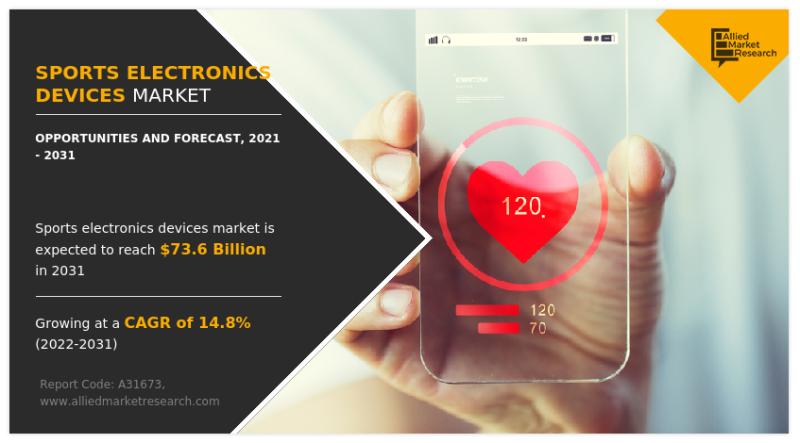

Sports Electronics Devices Market
Allied Market Research, titled “Sports Electronics Devices Market,” The sports electronics devices market was valued at $19.6 billion in 2021 and is estimated to reach $73.6 billion by 2031, growing at a CAGR of 14.8% from 2022 to 2031.
Get a PDF brochure for Industrial Insights and Business Intelligence @ https://www.alliedmarketresearch.com/request-sample/A31673
Sports electronics devices are advanced gadgets designed to boost athletic performance, monitor fitness data, and provide real-time analysis for progress. These devices are used in various sports and fitness activities, benefiting athletes, fitness enthusiasts, and casual users alike in reaching their objectives. One widely used sports electronics device is the fitness tracker, available as wristbands or smartwatches. It keeps tabs on heart rate, step count, distance covered, estimated calorie burn, and even sleep patterns, serving individuals seeking an active and healthy lifestyle.
Another crucial device is the GPS sports watch, which utilizes GPS technology to track routes and measure speed and distance for runners, cyclists, and outdoor enthusiasts. The data collected aids users in performance analysis, goal setting, and training enhancement. Additionally, there are sports-specific devices like golf GPS watches or cycling computers, catering to golfers and cyclists with features like course maps, swing analysis, and real-time cycling metrics.
Moreover, sports electronics devices include action cameras, beloved by extreme sports enthusiasts. These rugged, compact cameras capture high-quality videos and images, allowing users to document adventures and share them on social media, attracting both recreational users seeking excitement and professional athletes showcasing their skills to a wider audience. Overall, these devices have transformed how athletes and fitness enthusiasts monitor and improve their performance, becoming essential companions for individuals at all fitness levels, from beginners aiming to stay active to elite athletes pursuing competitive success.
Due to increased investment in the sports industry by manufacturing businesses and an increase in the usage of wearable technology by athletes, the market for sports electronics devices globally is anticipated to expand significantly throughout the forecast period. In addition, the need for biosensor solutions is likely to drive the growth of the sports electronics devices market during the forecast period due to advanced technologies being used in fitness and sports facilities to monitor athletes’ biorhythms. However, some of the key issues impeding the growth of the sports electronics devices market are the high initial investment, low budgets, and data privacy and cybersecurity concerns.
Get Customized Reports with your Requirements: https://www.alliedmarketresearch.com/request-for-customization/A31673
The smart camera segment was the highest contributor to the market in 2021, whereas the pedometers and smart fabrics segments collectively accounted for a notable market share in 2021 for the sports electronics devices industry. The fitness centers segment was the highest revenue contributor in 2021.
KEY FINDINGS OF THE STUDY
– In 2021, the pedometers segment accounted for maximum revenue and is projected to grow at a notable CAGR of 16.0% during the forecast period.
– The fitness centers segment was the highest revenue contributor to the market in 2021.
– The fitness centers and sports centers segments collectively accounted for around 82.45% market share in 2021.
– The fitness or heart rate monitors and pedometers segments are expected to witness considerable CAGRs of 18.36% and 16.09%, respectively, during the forecast period.
– North America and Europe collectively accounted for around 67.53% share in 2021.
The overall sports electronics devices market analysis is determined to understand the profitable sports electronics devices market trends to gain a stronger foothold. The key players profiled in the report include Apple, Blast Motion, Catapult Sports, Fitbit (Google), Garmin, Hawk-Eye Innovations (Sony Corporation), Panasonic Corporation, Polar Electro, Adidas, and Zepp. Market players have adopted various strategies, such as product launches, collaboration, partnerships, joint ventures, and acquisitions, to expand their foothold in the sports electronics devices market.
Enquiry Before Buying: https://www.alliedmarketresearch.com/purchase-enquiry/A31673
About Us:
Allied Market Research is a leading provider of market intelligence, offering reports from top technology publishers. Our in-depth market assessments in our research reports take into account significant technological advancements in the sector. In addition to other areas of expertise, AMR focuses on the analysis of high-tech systems and advanced production systems. We have a team of experts who compile thorough research reports and actively advise leading businesses to enhance their current procedures. Our experts have a wealth of knowledge on the topics they cover. Additionally, they employ a range of tools and techniques when gathering and analyzing data, including proprietary data sources.
Contact Us:
David Correa
1209 Orange Street,
Corporation Trust Center,
Wilmington, New Castle,
Delaware 19801 USA.
Int’l: +1-503-894-6022
Toll Free: +1-800-792-5285
Fax: +1-800-792-5285
help@alliedmarketresearch.com
Access the Full Report @ https://www.alliedmarketresearch.com/sports-electronics-devices-market-A31673
This release was published on openPR.
Technology
Netflix Co-CEO Greg Peters on Tariffs, Levy, Ads, Sports Team
Netflix co-chief Greg Peters shared some insight into the global streaming giant’s playbook during The Wall Street Journal CEO Council Summit in London on Wednesday, including its thoughts on political proposals in the U.S. and U.K., competition from YouTube, and the streamer’s push into advertising. Asked about a recent proposal from a U.K. parliamentary committee for a […]
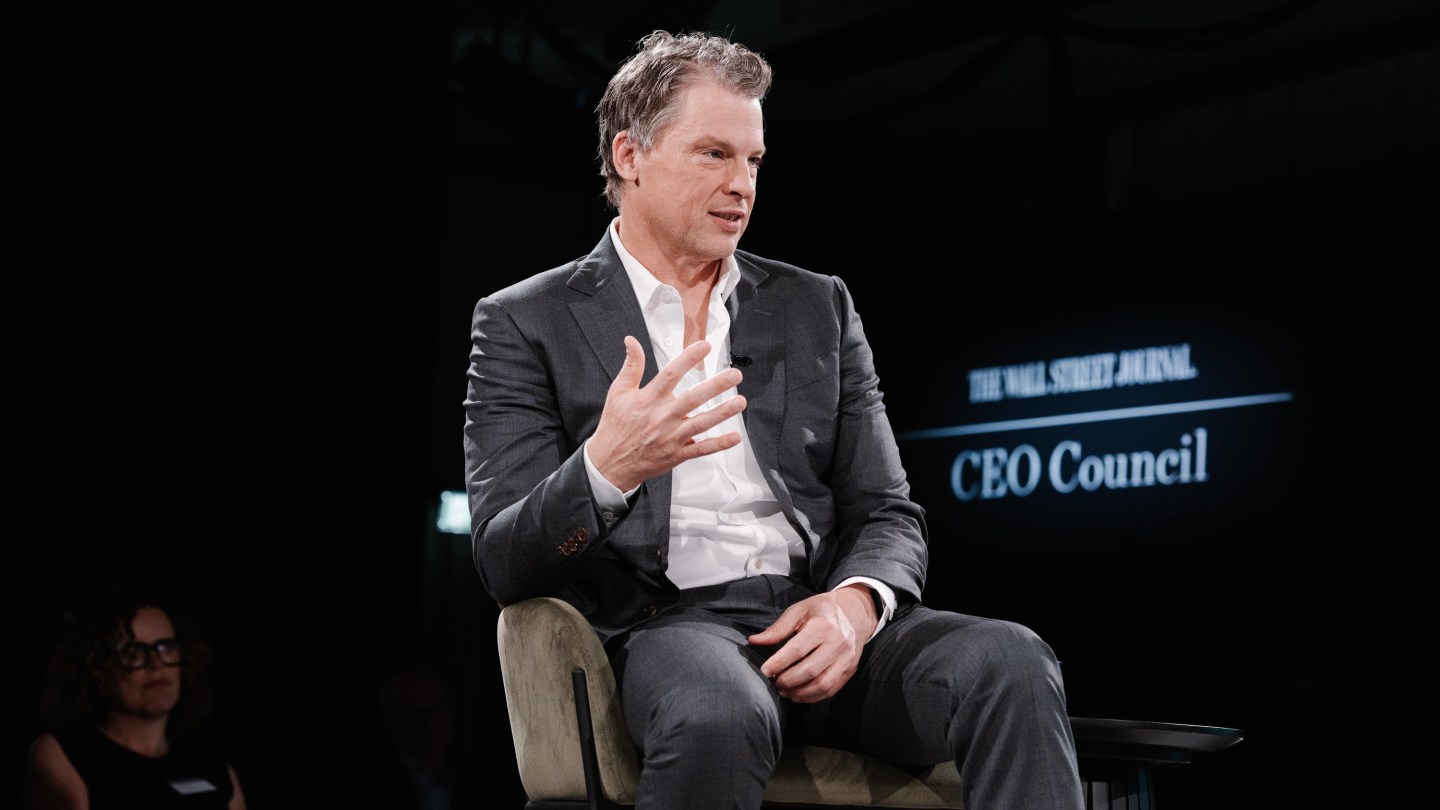
Netflix co-chief Greg Peters shared some insight into the global streaming giant’s playbook during The Wall Street Journal CEO Council Summit in London on Wednesday, including its thoughts on political proposals in the U.S. and U.K., competition from YouTube, and the streamer’s push into advertising.
Asked about a recent proposal from a U.K. parliamentary committee for a levy of 5 percent of U.K. subscriber revenue on foreign streaming services, including the likes of Netflix, Amazon, Apple TV+ and Disney+, to help finance British drama production, Peters said: “I think it would be a mistake. … I could list 100 titles that were made here in the U.K. that U.K. audiences loved. Whether it’s Adolescence or Toxic Town, the Harlan Coben stuff, such as Fool Me Once, or, even Black Doves.”
U.S. President Donald Trump’s suggestion of possible tariffs on entertainment produced abroad and the debate about how the U.S. could attract more productions was also brought up. Peters in response pointed to the success of the U.K., Netflix’s second-largest production hub behind the U.S. “One of the reasons that we’ve invested a lot here is because there’s incredible infrastructure, there’s incredible talent, and there’s a great production incentives model,” he said. “So everything is in place to make this ecosystem really, really work. And I think that that’s a great example for the United States as well. We have got good infrastructure in many places. We got a lot of great talent. And states are highly competitive with production incentives that allow us to bring more work to places like New Jersey, where we’re building a whole new production facility, or New Mexico, where we’ve built a new production facility. I think that’s probably the model to think about.”
No tariffs worries then? “We try to focus on the things that we can control,” Peters said. “If we have a specific proposal to respond to, we will, but nothing really material yet.”
Some observers have suggested that AI could help further personalize entertainment options served up to subscribers. “There’s a really interesting question around what entertainment experiences people gravitate towards,” Peters said. “There’s no doubt that highly personalized anchors one end … but a shared, a joint experience anchors another end of that. What I think is happening more and more is that we’re actually going to the sort of bimodal distribution of value. So, that middle is the place that’s getting washed out.”
The co-CEO then outlined what that means for companies and their strategies. “There’ll be companies that do an amazing job in the incredibly micro-personalized and maybe to the point of you’re starring in your own narrative,” he said. “There’s a big center of value that we’re really more focused on, which is how do we present a collective experience that we can all talk about. So, if you and I both watched a show like Adolescence, for example, there’s value in us having that shared experience and being able to talk about it.”
User-generated content as competition was also an area Peters discussed, acknowledging that YouTube, for example, was competition for consumers’ time and attention. “We look at YouTube as a training ground for creators,” he highlighted though. Netflix hopes to attract some of them and “give them the opportunity to tell their story in our model which is different from YouTube,” he added. “We fund the productions rather than relying on the creator to fund it. We can typically fund them at a higher level. We have a more efficient monetization model than YouTube does.”
Asked about Netflix’s push into advertising with its ad tier, Peters said: “We’re really just getting started.” When the firm starts something new, it won’t be great at it right away, the executive tends to tell his team. “There’s ton of opportunities for us to extend the way that ads show up” in new formats, in ways that work for audiences and marketers, he mentioned. “Better targeting and better personalization” are among the other future upside areas.
Does Netflix think about itself more like a family or a soccer team? “We definitely think of ourselves as a sports team rather than a family,” Peters explained. “And the thought there is that we want to have an explicit approach that we seek the best players for every position. That means different skill sets in different positions. But it’s not a family situation which is unconditional love.”
The executive’s appearance, entitled “Borderless by Design: Disruption, Scale, and the Global Netflix Playbook,” was live-streamed. “As the streaming landscape evolves, Netflix continues to lead through disruption and expansion,” a description for it said. “Peters discusses what it takes to guide one of the world’s most recognized consumer brands across markets, technologies, and audiences. From navigating cultural complexity to scaling innovation and building new revenue models, Peters shares how Netflix’s leadership approach is shaping the next phase of global growth – and setting the tone for the future of entertainment.”
Netflix co-CEO Ted Sarandos said on Tuesday during a visit to Madrid to celebrate the streaming giant’s 10-year anniversary in Spain that the company would invest €1 billion ($1.1 billion) in the country by 2029.
Technology
CEIA’s Luca Cacioli on AI, security and leadership
Periodically, SBJ Tech will feature a content series called Leadership Look-In, where C-suiters in sports tech offer thoughts on their companies, experiences and personnel management. Want to be considered for a future installment? Email me at ejoyce@sportsbusinessjournal.com. Luca Cacioli has been the CEO of CEIA USA for more than six years, guiding the security screening […]
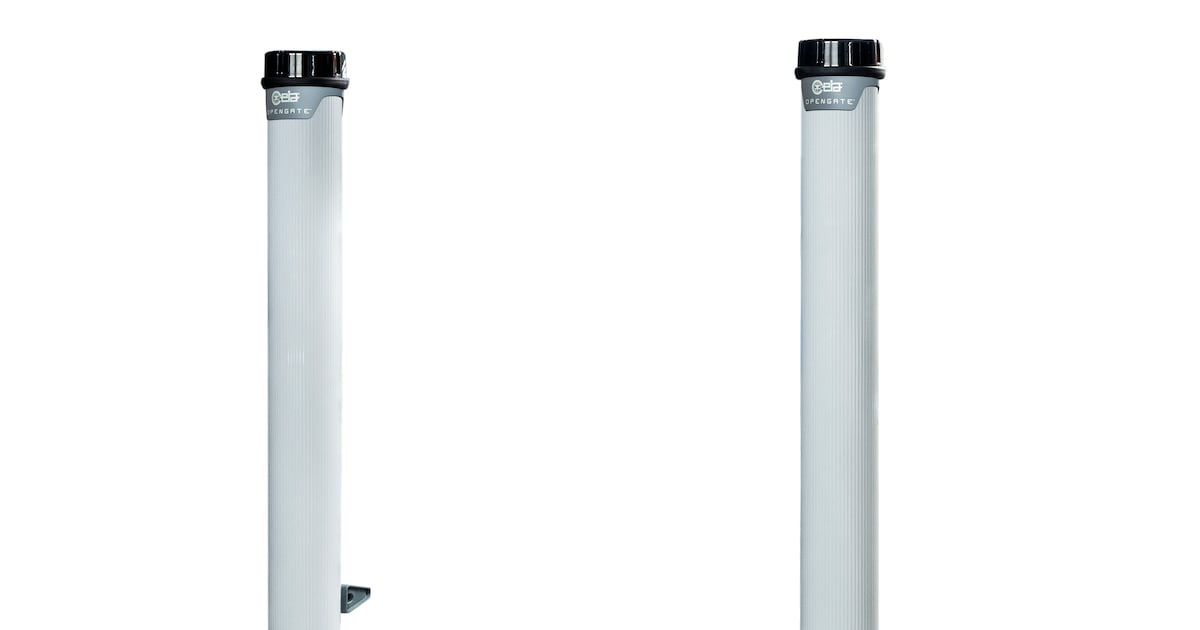
Periodically, SBJ Tech will feature a content series called Leadership Look-In, where C-suiters in sports tech offer thoughts on their companies, experiences and personnel management. Want to be considered for a future installment? Email me at ejoyce@sportsbusinessjournal.com.
Luca Cacioli has been the CEO of CEIA USA for more than six years, guiding the security screening provider that serves multiple industries, such as the federal government, schools, airports and sports venues.
While CEIA doesn’t share client information, it works with hundreds of companies and has decades of experience with stadiums and arenas. Cacioli started his professional career in Italy as an electrical engineer, later shifting to business management and making his way to the top chair of the longtime detector manufacturer. He spoke to SBJ about the security growth he’s seen in sports, the role of AI in the process and the early learnings that prepared him for leadership.
Note: These excerpts have lightly edited for clarity.
On the changes he’s observed in sports and entertainment: “More responsible parties running these events have realized that maybe they could become some kind of target if they didn’t do anything. Maybe some security needed to be taken into account with more drive. And over time, the market has grown because of that. While initially it was more of an … isolated approach, it’s become very pervasive these days. There are very few events that don’t do any kind of screening, or they don’t have the security of certain kind. … And with that, what we’ve learned over the last 10 years is that there is a need in the market to make sure that we give fans a safe experience, but also a positive, quick experience.”
On using AI in the screening process: “Artificial intelligence is a tool. … A detector doesn’t do everything. You need to have a layered approach to your security. I’m trying to draw a parallel here: artificial intelligence can be a useful tool as part of a bigger approach to your design process. … I cannot go through too much of our design process, but I can tell you that AI is a tool which we use when we deem it appropriate.”
On competition: “There is a lot of competition. A lot of competition comes because the market in the last 10 years has increased in size. So, more and more competitors come in. Now, competition is not really a negative thing. Actually, competition helps us be better. So, I personally welcome competition from that point of view.”
On the impact of his family’s business on his transition from engineering: “Growing up in Italy, I worked on my family’s small business, and my family has a very typical Italian olive oil business. I was always growing up in front of customers. It’s really because of my experience and instruction and really working in that environment since I was a teenager, I did not feel like I was having difficulties. I have to say that the MBA [he attended SMU] helped me tremendously to think in a certain way. … I was an engineer, so that definitely opened up my mind a little more.”
On his key leadership learnings as CEO: “First, delegating. I’m not good at delegating. I’m working on it more and more. However, I have realized that once you are able to hire the right people and have the right people in place … delegating comes more easily and more naturally. So, that I had to learn as a younger manager — I wasn’t good at all at that. But also at the time, I didn’t even grasp the importance of having the right team in place. And the right team in place, in my opinion, is not a bunch of people who think like you. Actually, I love a healthy discussion and disagreement in the team. … Diversity of opinions is important, as long as the manager, in this case me, takes responsibility for the decisions made at the team level.”
Technology
Walgreens Is Pitching Advertisers a Data Clean Room
Walgreens is working with LiveRamp to give its advertisers hands-on access to data from its 101 million loyalty program members. Through the partnership, Walgreens Advertising Group—or WAG—is offering a clean room solution that lets advertisers target customized groups of Walgreens customers across walled gardens and the open web. Advertisers can then connect that targeting data […]
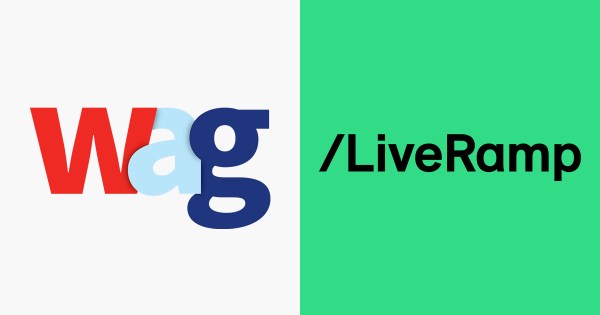
Walgreens is working with LiveRamp to give its advertisers hands-on access to data from its 101 million loyalty program members.
Through the partnership, Walgreens Advertising Group—or WAG—is offering a clean room solution that lets advertisers target customized groups of Walgreens customers across walled gardens and the open web. Advertisers can then connect that targeting data back to Walgreen’s sales data, giving a clearer picture of which ads work.
Using LiveRamp’s conversion APIs, advertisers can see “real incremental sales—not attributed sales—on over 450 offsite platforms,” said Abishake Subramanian, group vp of customer marketing and media monetization at Walgreens.
WAG is one of many retail media networks partnering with tech companies to improve their pitch to advertisers as the retail media landscape gets more crowded and more competitive.
“For advertisers to want to continue to spend money—or spend money in the first place—they should have access [to] and understanding of who they’re targeting, why they’re targeting them, and the effectiveness,” Kevin Dunn, svp of brands and agencies at LiveRamp, told ADWEEK.
In addition to improving measurement tools to capture incremental return on ad spend, the LiveRamp deal helps WAG get its clients’ ads into the market faster and allows for more efficient audience targeting and secure data integration, Dunn said.
“The power of retail media is they have the transactions, and so they can really show you—at least within WAG—are you growing a category? Are you getting a new buyer?” Dunn said.
Technology
PlayMetrics and Stack Sports Combine to Create Leader in Sports Software
Merger unites two industry innovators to meet customers’ evolving preferences and ushers in a new era for sports technology RALEIGH, N.C., & DALLAS, June 11, 2025–(BUSINESS WIRE)–PlayMetrics, a leading provider of operations management software for youth sports organizations, and Stack Sports, a global technology leader for the sports industry, today announced their merger, creating a […]

Merger unites two industry innovators to meet customers’ evolving preferences and ushers in a new era for sports technology
RALEIGH, N.C., & DALLAS, June 11, 2025–(BUSINESS WIRE)–PlayMetrics, a leading provider of operations management software for youth sports organizations, and Stack Sports, a global technology leader for the sports industry, today announced their merger, creating a best-in-class platform in the sports management technology ecosystem. This strategic combination unites two highly complementary and trusted brands, augmenting PlayMetrics’ modern technology platform with the scale, reach, and capabilities of Stack Sports to better serve the evolving needs of sports organizations worldwide. Michael Doernberg, CEO of PlayMetrics, will lead the combined organization as CEO, and Jeff Young, CEO of Stack Sports, will transition to a strategic role as advisor to the board of directors.
Genstar Capital, a leading private equity firm, supported the combination and will be the majority owner of the combined company. As part of the transaction, Genstar acquired PlayMetrics from Blue Star Innovation Partners (“BSIP”), which had been the company’s lead investor since 2023.
PlayMetrics helps customers streamline and modernize every facet of their operations, serving over 2,700 youth sports organizations across a variety of sports. Following a successful expansion beyond its flagship club operating system into governing bodies, leagues, and tournaments – including the acquisition of Crossbar in 2023 – PlayMetrics has experienced unprecedented levels of growth and customer retention over the last few years. Stack Sports is a global technology leader in SaaS platform offerings for the sports industry.
“Sports organizations are increasingly seeking a single, cohesive platform to manage their daily operations and complex business needs,” said Mr. Doernberg. “PlayMetrics has been transformational in delivering a one-stop solution for members, coaches, directors, and administrators. By joining forces with Stack Sports, we further enhance our ability to serve our customers with innovative, reliable, and intuitive software.”
“This merger marks an exciting new chapter for the sports technology industry,” said Mr. Young. “We have long admired the PlayMetrics brand, and by combining our strengths, we will accelerate the speed at which new products are released, customer service is delivered, and industry relationships are forged.”
“The combination of PlayMetrics and Stack Sports creates one of the largest sports technology platforms delivering comprehensive, market-leading solutions to clubs, leagues, tournaments, state associations, and governing bodies,” said Eli Weiss, Managing Partner of Genstar. “We are thrilled to support this transformative combination.”
Technology
College sports settlement sure to entice private equity; Verlinvest and Mistral increase Insomnia Cookies stake
Good morning, Hubsters! Rafael Canton here with the US edition of the Wire from the New York newsroom. Let’s kick off the Wire with college sports. After a settlement in the House vs. NCAA, college athletes can be directly compensated by schools. That could open opportunities for PE firms to invest. We’ll dive into what […]

Good morning, Hubsters! Rafael Canton here with the US edition of the Wire from the New York newsroom.
Let’s kick off the Wire with college sports. After a settlement in the House vs. NCAA, college athletes can be directly compensated by schools. That could open opportunities for PE firms to invest. We’ll dive into what we know so far.
We’ll look at how deal value has risen so far despite deal count dropping according to HarbourVest’s 2025 Midyear Market Outlook.
Also, in a deal announced yesterday, Verlinvest and Mistral Equity Partners have increased their investment in Insomnia Cookies. The focus for both firms has been about expansion both nationwide and internationally.
Finally, we’ll dig into restaurant deals and why they are attractive. Houlihan Lokey has its US Restaurant Industry update.
Pay day
On Friday, a federal judge approved a settlement in the House vs. NCAA. The settlement will allow college athletes to be directly compensated by NCAA institutions for their name, image, and likeness (NIL) rights.
Private equity is expected to have interest in the college sports arena. In April, Buyouts reporter Alfie Crooks covered how the eventual settlement could lead to PE investment. In 2024, RedBird Capital Partners and Weatherford Capital created Collegiate Athletic Solutions, a capital- and business-building provider for public and private university athletic departments across the US.
“The paradigm shift we are seeing in the collegiate athletics ecosystem is similar to the ones we’ve seen with media distribution models, collective bargaining rights, and premium hospitality – they’re all centered around the need to create long-term growth by bridging the gap between premium IP and optimizing revenue streams,” Gerry Cardinale, founder of RedBird, said in a statement at the time of the CAS formation.
Under the new rules that could arise from the settlement in the antitrust case, universities would be allowed to distribute up to 22 percent of gameday revenue with student athletes, with each school subject to a $21 million per-year cap that grows by 4 percent each year.
The pool of capital distributed can be derived from revenue streams including ticket sales, broadcasting rights and sponsorships, shifting the college model closer to a professional model. It would not include NIL payments from outside sources or scholarships.
PE Hub has been following the college sports interest from PE firms since 2024. Before, the only deals that could be done involved NIL. Harlan Capital Partners invested in Nilly, which is a financial technology company with an online marketplace that allows college student athletes to maximize the value of their NIL.
At the end of the year, I highlighted college sports as one of the growing trends in PE’s interest in the overall sports ecosystem.
Increased deal value
Despite economic uncertainty, global private equity buying activity held up well in the first three months of 2025 according to HarbourVest’s 2025 Midyear Market Outlook. Private equity deal values rose to $495 billion in Q1 2025, surpassing the Q4 2024 total of $462 billion and a near-40 percent YoY increase ($345 billion).
Deal count in the first quarter was down slightly from Q4 2024 but also above Q1 2024. The report notes that there has been a slowdown in dealmaking in recent months and it seems unlikely that Q2 figures will show sustained momentum.
The report also highlights how US private equity had a 25 percent increase in Q1 value invested over the previous quarter and a jump of 36 percent on Q1 2024. One reason for the increase was take-private transactions.
The quarter’s total public to private deal value was $51 billion, or around one third of the total for full-year 2024 and 2023. In April, I highlighted how take-private deals in software have held their own and what makes take-privates in software attractive to PE firms.
Sweet progress
Verlinvest and Mistral Equity Partners have increased their investment in Insomnia Cookies, a New York and Philadelphia-based late-night bakery brand. Both firms are acquiring Krispy Kreme’s remaining stake in the deal.
Insomnia Cookies is now on track to scale to 1,800 bakeries globally over the next decade. Seth Berkowitz serves as CEO and founder of Insomnia Cookies.
“We believe Insomnia Cookies has all the ingredients to become a global icon in quality indulgence: a visionary founder, a cult-like following, and a clear edge in digital convenience,” said Clément Pointillart, managing director at Verlinvest in a statement. “We’re proud to deepen our commitment to Seth and the team as we help take Insomnia across the globe.”
In 2024, I spoke to both Verlinvest and Mistral about the initial deal which saw Krispy Kreme break off pieces of its majority stake to both PE firms. Expansion both nationwide and internationally was a focus for both firms with the deal at the time. Insomnia had 293 locations in 2024, so 1,800 locations is a huge step. Pointillart pointed to Verlinvest’s past investments in brands like Oatly and Tony’s Chocolonely as examples of its history in taking brands international.
Rapid expansion
Restaurant franchise assets continue to command premium valuations, driven by their asset-light economics, predictable cash-flow profiles, and ability to scale rapidly through multi-unit development according to Houlihan Lokey’s US Restaurant Industry update.
Recent premium multiples have favored platforms with 200-plus locations, reflecting investor preference for concepts with proven operating models, geographic diversity, and runway for continued unit expansion.
Private equity has consistently had interest in restaurants. Roark Capital announced an investment in Dave’s Hot Chicken. Several media outlets reported the value of the deal was $1 billion. The chain specializes in Nashville style hot chicken and expects to end the year with more than 400 restaurants according to a statement. In November, Blackstone took a majority stake in Jersey Mike’s Subs in November.
The report said that the year began with several large owned and franchised brands preparing to enter the market. While early signs point to a strong pipeline, market appetite will be tested in the months ahead as buyers and investors navigate a complex economic and global environment.
I’ve been covering PE’s interest in franchises for a few years and shared insights from dealmakers back in 2023.
That’s it for me. If you have any questions, thoughts, or want to chat about deals in the tech, consumer or sports sectors, please email me at rafael.c@pei.group.
Tomorrow, Nina Lindholm will be with you for the Europe edition of the Wire and Michael Schoeck will bring you the US edition.
Cheers,
Rafael
-

 NIL2 weeks ago
NIL2 weeks ago2025 NCAA Softball Tournament Bracket: Women’s College World Series bracket, schedule set
-

 Health7 days ago
Health7 days agoOregon track star wages legal battle against trans athlete policy after medal ceremony protest
-

 Professional Sports7 days ago
Professional Sports7 days ago'I asked Anderson privately'… UFC legend retells secret sparring session between Jon Jones …
-

 College Sports2 weeks ago
College Sports2 weeks agoIU basketball recruiting
-

 Professional Sports7 days ago
Professional Sports7 days agoUFC 316 star storms out of Media Day when asked about bitter feud with Rampage Jackson
-

 Rec Sports2 weeks ago
Rec Sports2 weeks agoScott Barker named to lead CCS basketball • SSentinel.com
-
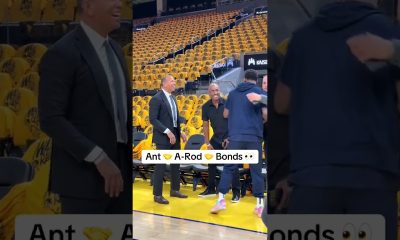
 Youtube3 weeks ago
Youtube3 weeks agoAnt greets A-Rod & Barry Bonds before Game 3
-

 Rec Sports2 weeks ago
Rec Sports2 weeks agoJ.W. Craft: Investing in Community Through Sports
-

 Motorsports2 weeks ago
Motorsports2 weeks agoNASCAR Penalty Report: Charlotte Motor Speedway (May 2025)
-

 Motorsports2 weeks ago
Motorsports2 weeks agoRockingham Speedway listed for sale after NASCAR return






 Pacers put the Cavs on the brink, OKC evens series in Denver | SportsCenter
Pacers put the Cavs on the brink, OKC evens series in Denver | SportsCenter




























